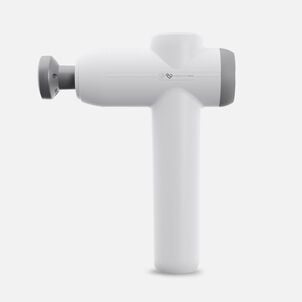The question people with HSAs often ask is whether or not they can use their account to pay for the expenses of family and friends as qualified HSA dependents.
The answer is "yes" when it comes to specific family members, and a big "no" when it comes to friends. (Well, just to keep things interesting, there is one exception to that rule, which we’ll get into later.)
But first, let's take a quick look at the ways in which the IRS lets you use your HSA to pay for the healthcare costs of those closest to you.
Who exactly is covered under an HSA?
The IRS has the following requirements for individuals to qualify for an HSA:
- Enrolled in a high deductible health plan (HDHP) with no other disqualifying health coverage that pays for treatment before a deductible is reached.
- Not enrolled in Medicare
- Not claimed as a dependent on another person's current year tax return
The following people are eligible for reimbursement for qualified medical expenses under IRS rules:
- You and your spouse
- Any dependents you claim on your taxes
- Anyone you could have claimed as a dependent on your taxes but didn't because that person either filed a joint return, earned more than $4,400 during the year, or could claim you or your spouse as a dependent on their tax return
Your spouse and your dependents are covered under your HSA, even if they aren't covered under your HDHP.
Based on these rules, however, only family members who are classified as your spouse, or as dependents that you claimed on your most recent tax return, or that you could have claimed on your tax return, would be eligible for coverage under your HSA.
What is the "friend" exception?
It's important to understand that we're providing you with IRS definitions of individuals who are eligible for HSA expenses, and we don't advise or recommend that you list a friend (or any non-relative) as a dependent on your tax return simply to pay for that person's healthcare expenses.
Back to the “friend” exception. The only time you can use your HSA to pay for the healthcare costs of a friend is if you have named that person as a dependent on your most recent tax return (provided that they qualify under the non-relative qualifications — detailed below).
For a non-relative to be claimed as a dependent, they must:
- Live with you all year, in your household (that's 365 days, with minor exceptions made for temporary absences such as school, illness, business, vacation, or military service)
- Have a gross income for the year of less than $4,500 (tax-exempt income, such as certain social security benefits, is not included in gross income)
- Receive more than half of their total financial support from you
- Not file a joint return with anyone else
One thing that's not up for debate is that the IRS is strict about the people considered eligible under an HSA. We also should not be confused with legal or tax advisers. If you have any doubts about paying for the expenses of anyone who isn't your spouse or a dependent, you should consult with your HSA administrator, or with a tax professional, before you take action.
As always, the information provided in this article should not be considered legal or tax advice. Please consult a licensed professional for appropriate advice given your individual situation.
-
Thank you for visiting the HSA Store Learning Center! Don’t forget to follow us for more helpful tips on Facebook, Instagram, and Twitter!



.png)
















